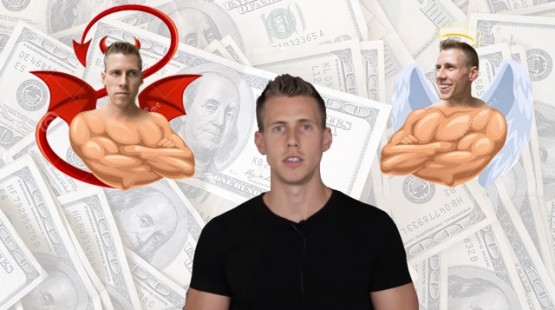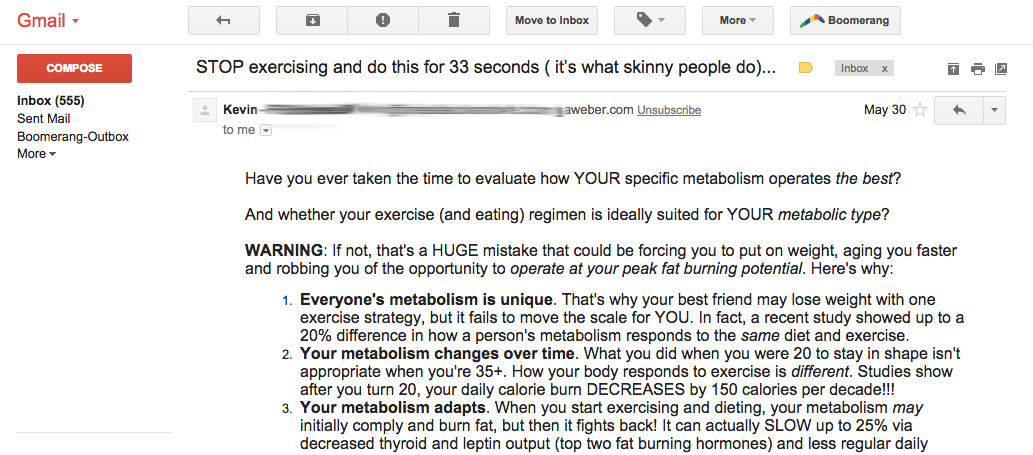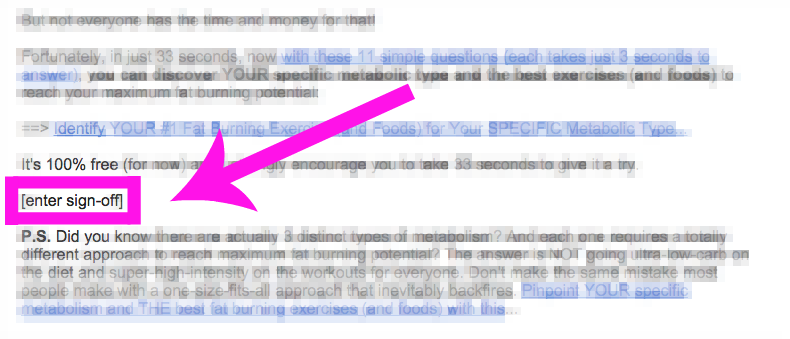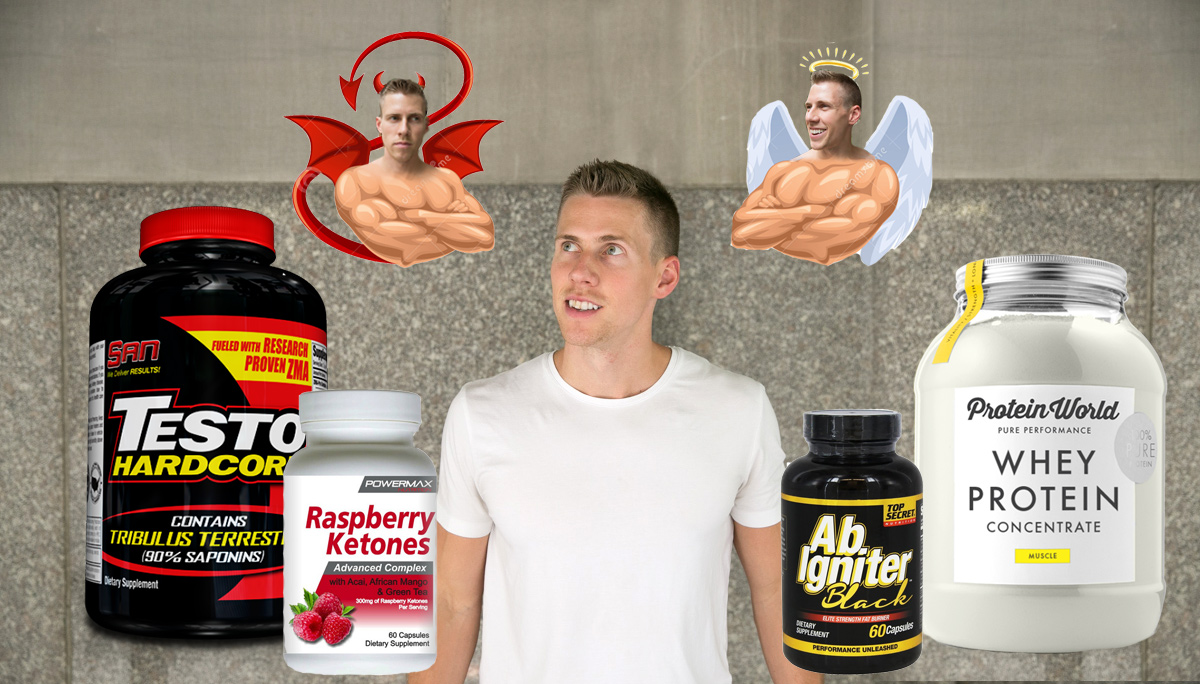What is Affiliate Marketing (and why I don’t do it)
Posted by Michael Vacanti

.
It was early June, and my feet were up.
Gary was grilling 95% Australian ground beef.
I opened my gmail account.
Kevin from xyz fitness company from wrote me.
Well, kind of.
Kevin didn’t actually write anything
Kevin copy-pasted “swipe” written by another person then sent it to his “list.”
The condescending and self-hate inducing subject line was my first clue.
The hyperbolic content of the email, evidence numero dose.
But it was old Kevbo’s farewell that confirmed my assumption:
I mean, spending four seconds to type your name is quite a bit of work.
Probably easiest to hit send without even reading the email.
Yeah, yeah let’s do that.
It’s not like there are human beings reading this who trust you and are making decisions that impact their health based on your recommendations.
Scumbag.
.
What Is Affiliate Marketing?
Promoting another person’s product or service and generating a commission based on that recommendation.
An affiliate can make money a few ways:
- Paid per click
- Paid per sign up
- Paid per sale
If you click the link and buy whatever is being promoted, Kevin receives a percentage of that sale.
The link used in Kevin’s email is an “affiliate link.”
If you click it, Kev gets credit.
But if you fall upon that webpage via another link, Kev does not get credit.
Identifying Affiliate Links
The user identification name almost always appears within the url.
For example:
.
Where Do You See Affiliate Links?
Your Inbox: This was pretty clearly outlined in our intro.
Social Media: When a smokeshow posts pictures of her ass on the gram and tells you that, yes, you too can look like her if you buy the fat burner linked in her bio.
Blog: Writing a post with a sales pitch at the end. Personally, in the past, I have used Amazon affiliate links on this blog when recommending books I enjoy.
Podcast: If you are ever told “enter this code for 10% off” that is an affiliate link.
.
Wait… why does any of this matter?
It is important that you understand the incentives in play.
I’m going to tell you a story. A story about you.
You are a personal trainer.
People ask you what kind of protein powder you recommend.
You tell them honestly. Why would you do anything else?
Buy protein X because it’s tasty, the macros are on point and it’s priced reasonably.
Duh.
NOW, pretend I own a supplement company.
I offer you 30% of any sales generated at your recommendation. You will also get 30% of all future purchases made by that buyer.
Pretty sweet, right?
This offer is way more lucrative than any other supplement company is offering.
And your real favorite company doesn’t even HAVE an affiliate program!
You like my protein powder.
It’s tasty. The macros are solid. It’s definitely on the expensive side. You wouldn’t buy it yourself, but I send you a tub per month and you happily use it in your post workout shake.
Now whattya gonna recommend??
It’s not so easy when there is money on the line.
Affiliate marketing matters to the buyer because it is important for you to know that influencers are often getting paid to recommend products.
While this does not invalidate their recommendations, it would be disadvantageous for you NOT to question the authenticity of each suggestion.
.
Is Affiliate Marketing Immoral?
No.
That might surprise you, given the tone of this article.
But Affiliate Marketing is neither good or bad.
The morality of affiliate marketing is dictated by who is doing it and how they are doing it. It is about the presence of honesty or deception in four key areas:
1. Disclosure: Does the buyer know you are making a commission?
2. Product Matches Audience: Do you truly believe the product will serve it’s intended purpose and meet your audience’s needs?
3. Forthright Sales Copy: Are you promising 30 pounds of muscle in 20 days? Or any other physiologically impossible feats?
4. Miscellaneous Scumbaggary: What are you promoting? Is it a “free service” that starts billing on day 30, but don’t worry you can cancel*
*Please send a copy of your birth certificate and three notarized bank statements sealed with dragon blood by direct mail to this shady address in Taiwan
.
Conclusion: affiliate marketing is not immoral.
Though, writing this section is reminding me of the subjectivity of morality.
But we’re just gonna go with my analysis since, ya know, it’s my blog. Feel free to torch me in the comments though that always feels good.
..
Affiliate Marketing Done Right
Let’s put my friend John Romaniello under the microscope.
Mainly, because he is a good example of someone who affiliate markets appropriately.
Roman promoted Cressey’s High Performance Handbook in a blog post about strength. Specifically, why strength matters.
Disclosure?
Yes. Not only does he disclose the fact that he is an affiliate, his disclosure page is hilarious.
Product Matches Audience?
Yes. Roman Fitness Systems is the self proclaimed HBO of fitness content. I think getting stronger via strength training falls pretty soundly under that umbrella.
Forthright Sales Copy?
Yes. Nothing crazy or deceptive going on here.
Misc Scummbaggary?
Nope. Cressey is selling a pretty straight forward information product that is A+ quality and offers a money back guarantee.
So as you can see, it’s not hard to affiliate market the right way. I guess metabolic enhancers and natural testosterone boosters just sell better.
.
.Mike, I would totally buy stuff you promote!
Why Don’t You Affiliate Market?
I have tried to answer this question from a business point of view.
Something like:
Building more trust in the short run (by not affiliate marketing) is better for OTR in the long run!
But honestly, I know I am leaving money on the table by not affiliate marketing.
Profiting from something I didn’t make feels weird to me.
Maybe this will change.
Maybe if I have expensive kids or sick parents or any real obligations beyond feeding myself and lifting weights, I will look to add revenue streams. But right now, I just don’t care about money.
I don’t ever want to tell my grandkids I built an empire because my email copy for someone else’s herbal supplement converted at an astounding rate.
My gut and heart and balls won’t let me do it.
.
“Mike… do you think.. maybe.. would it be cool if I had cheese on my burger?”
It was cute.
He sounded like a kid asking permission.
Gary Vaynerchuk, one of the greatest marketers of our era, is freaking out over six grams of dietary fat while a fitness marketer is spamming me unedited SWIPE for some metabolism booster.
G would vomit on my laptop if he saw it.
He became an industry titan by playing the long game, really giving a shit about people, and making decisions driven by legacy rather than profit.
He’s still standing there. Impatiently wondering if those 80 extra calories are going to make the cut today.
“Yeah bro, have some cheese. You earned it.”
I mean, he DID just do 90 fat grip chins.
ps I don’t totally hate Kev.
I don’t know him personally and I don’t know his specific circumstances.
What bothers me is the imbalance between giving value and selling.
He literally only sends emails when I’m supposed to OMG BUY NOW.
It’s the equivalent of only sending late night texts and never taking me out to dinner. It’s like, at least romance me a little, bro.
I just feel used 😉
.
Thanks for reading. If you want to hear from me more often, I’ve been told my VIP newsletter is the best in the entire fitness community. You can sign up here.







Jared Hamilton
Hey man, I'm involved in affiliate marketing and I really appreciate this post. Agree with it 100%July 9, 2015 at 2:09 pm |